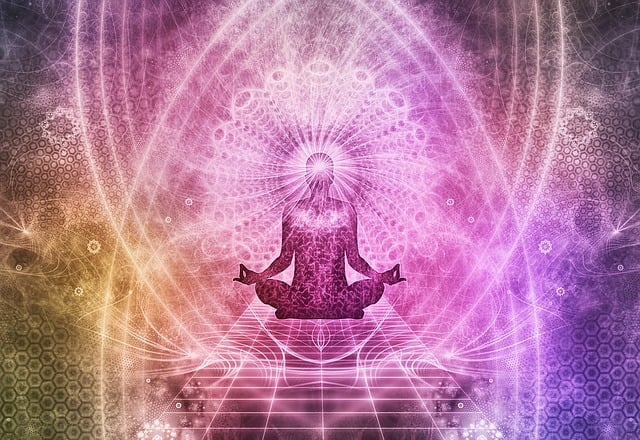
Have you ever wondered if Reiki healing is effective for emotional healing? If you’ve been feeling overwhelmed with emotions or struggling to find balance in your life, Reiki healing may be worth exploring. This ancient Japanese technique involves the transfer of energy from the practitioner’s hands to the recipient’s body, aiming to promote healing and restore emotional well-being. In this article, we’ll delve into the details of Reiki healing and its potential benefits for emotional healing.
Reiki healing operates on the idea that our bodies have an energy field that can become disrupted or imbalanced, leading to emotional or physical distress. During a Reiki session, a trained practitioner uses their hands to direct healing energy into the recipient’s body, focusing on specific areas that may be blocked or in need of attention. By doing so, Reiki aims to restore the flow of energy and create a sense of harmony and relaxation. Many individuals have reported feeling a deep sense of calm and relief after a Reiki session, with emotions becoming more balanced and manageable. In addition to its potential impact on emotional well-being, Reiki is also believed to have physical benefits, promoting relaxation, reducing stress, and even alleviating pain. So, if you’re seeking a holistic approach to emotional healing, stay tuned to learn more about how Reiki healing can be an effective tool on your journey towards emotional well-being.
Overview of Reiki Healing
What is Reiki Healing?
Reiki healing is a holistic energy healing practice that originated in Japan. The word “Reiki” can be broken down into two parts: “rei” meaning universal, and “ki” meaning life energy. It is based on the belief that there is a universal life force energy that flows through all living beings, and when this energy is disrupted or blocked, it can lead to physical, emotional, and mental illnesses.
History of Reiki Healing
Reiki healing was developed by Mikao Usui, a Japanese Buddhist monk, in the early 20th century. Usui discovered the healing power of energy after a 21-day fast and meditation retreat on Mount Kurama. He then developed the system of Reiki as a way to channel this energy for healing purposes.
Basic Principles of Reiki Healing
Reiki healing is based on five basic principles, also known as the Five Reiki Principles or Reiki Precepts. These principles serve as a guide for practitioners to live a balanced and fulfilling life. They are:
- Just for today, I will not be angry.
- Just for today, I will not worry.
- Just for today, I will be grateful.
- Just for today, I will do my work honestly.
- Just for today, I will be kind to every living thing.
By following these principles, practitioners aim to cultivate a positive and healing energy within themselves, which can then be shared with others during a Reiki healing session.
Understanding Emotional Healing
What is Emotional Healing?
Emotional healing refers to the process of healing emotional wounds, traumas, and imbalances. It involves addressing and releasing emotional pain, negative beliefs, and unresolved issues that may be causing distress or hindering personal growth. Emotional healing is essential for overall well-being and can lead to increased self-awareness, improved relationships, and a greater sense of inner peace.
Causes and Symptoms of Emotional Imbalance
Emotional imbalance can be caused by various factors, including past traumas, unresolved conflicts, negative thought patterns, and stress. It can manifest in various symptoms, such as anxiety, depression, anger, fear, low self-esteem, and relationship difficulties. These emotional imbalances can affect one’s overall quality of life and prevent them from fully experiencing happiness and fulfillment.

The Concept of Reiki Healing for Emotional Healing
How Reiki Healing Works?
Reiki healing works by balancing and harmonizing the energy within the body, mind, and emotions. During a Reiki session, the practitioner places their hands lightly on or just above the recipient’s body, allowing the universal life force energy to flow through them and into the recipient. This energy helps to dissolve energetic blockages and stimulates the body’s natural healing ability.
Benefits of Reiki Healing for Emotional Healing
Reiki healing can be highly effective in promoting emotional healing. Some of the key benefits include:
- Stress Reduction: Reiki helps to promote relaxation and reduce stress, which is essential for emotional well-being.
- Emotional Release: Reiki can facilitate the release of trapped emotions and emotional trauma, allowing for emotional healing and growth.
- Increased Self-Awareness: Reiki can help individuals become more aware of their emotions, thoughts, and patterns, leading to greater self-understanding and personal transformation.
- Improved Emotional Balance: Reiki assists in balancing emotional energy, promoting a sense of calmness, peace, and emotional stability.
- Enhanced Mental Clarity: Reiki helps to clear mental fog and negative thought patterns, allowing for clearer thinking and decision-making.
Scientific Evidence of Reiki Healing
Research Studies on Reiki Healing
There have been several research studies conducted to explore the effectiveness of Reiki healing. While the scientific evidence may be limited, some studies have shown promising results. For example, a study published in the Journal of Alternative and Complementary Medicine found that Reiki had a significant positive effect on a person’s mood, pain levels, and overall well-being.
Scientific Explanations of Reiki Healing
Although the mechanisms of Reiki healing are not yet fully understood or explained by science, there are some theories that attempt to provide scientific explanations. One theory suggests that the electromagnetic field generated by the practitioner’s hands during a Reiki session may have a positive effect on the recipient’s energy system. Another theory proposes that Reiki may stimulate the release of endorphins and other biochemical substances that promote healing and emotional well-being.

Reiki Healing Techniques for Emotional Healing
Hands-on Reiki Healing
Hands-on Reiki healing involves the practitioner placing their hands directly on the recipient’s body in specific positions to channel the universal life force energy. This technique allows for deep relaxation and supports emotional healing by helping to release energetic blockages and promote the flow of energy throughout the body.
Distance Reiki Healing
Distance Reiki healing allows the practitioner to send healing energy to the recipient even if they are not physically present. This technique is based on the understanding that energy is not limited by time or space and can be transmitted over long distances. Distance Reiki healing can be just as effective as hands-on healing and is particularly helpful for those unable to receive in-person sessions.
Chakra Balancing for Emotional Healing
The chakra system is a vital part of Reiki healing, and each chakra is associated with specific emotions and aspects of our being. Balancing the chakras involves removing any blockages or imbalances in their energy flow, which can contribute to emotional healing. A Reiki practitioner can use various techniques, such as visualization and energy work, to bring the chakras into balance and support emotional well-being.
Case Studies and Success Stories
Real-life Stories of Emotional Healing through Reiki
There are numerous real-life stories of individuals who have experienced significant emotional healing through Reiki. For example, Sarah, a Reiki client, had been struggling with severe anxiety and panic attacks. After a series of Reiki sessions, she noticed a significant reduction in her anxiety symptoms and a newfound sense of calmness and inner peace.
Testimonials from Reiki Practitioners and Clients
Many Reiki practitioners and clients have shared testimonials about the effectiveness of Reiki healing for emotional healing. These testimonials highlight the transformative effects of Reiki and how it has helped individuals overcome emotional challenges, improve their mental well-being, and cultivate a greater sense of self-empowerment and emotional balance.

Possible Limitations and Risks
Potential Limitations of Reiki Healing
While Reiki healing can be beneficial for emotional healing, it is important to acknowledge its limitations. Reiki should not be seen as a substitute for professional mental health treatment or therapy. It is essential to consult with a qualified healthcare professional for any serious emotional or mental health concerns.
Safety Precautions for Emotional Healing with Reiki
Reiki healing is generally safe and non-invasive; however, it is recommended to seek the services of a qualified and experienced Reiki practitioner. Additionally, individuals should inform their practitioner about any emotional or mental health conditions they may have to ensure that the session is tailored to their specific needs.
Tips for Finding a Qualified Reiki Practitioner
Check Credentials and Experience
When seeking a Reiki practitioner for emotional healing, it is important to check their credentials and experience. Look for practitioners who have completed reputable Reiki training programs and have a depth of experience in working with emotional healing.
Read Reviews and Testimonials
Reading reviews and testimonials from previous clients can provide valuable insights into a practitioner’s effectiveness and the experiences of others who have received emotional healing through Reiki. Look for practitioners who have a track record of positive feedback and successful outcomes.
Interview Potential Practitioners
Before committing to a Reiki session, it can be helpful to interview potential practitioners to get a sense of their approach and how they can specifically address your emotional healing needs. Ask about their experience, techniques, and any additional modalities they may integrate into their practice.

Combining Reiki Healing with Other Modalities
Integration of Reiki with Psychotherapy
Reiki healing can complement traditional talk therapy by providing an additional layer of support for emotional healing. Combining Reiki with psychotherapy can help individuals access and release emotions at a deeper level, facilitating a more comprehensive healing process.
Reiki Healing and Meditation
Reiki healing and meditation are often used together to enhance relaxation, promote self-awareness, and cultivate emotional balance. The combination of Reiki’s healing energy and meditation’s focus on the present moment can deepen one’s emotional healing journey.
Reiki Healing and Yoga
Integrating Reiki healing with yoga can be a powerful combination for emotional healing. Both practices focus on mindfulness, breathwork, and the mind-body connection, promoting self-awareness, stress reduction, and overall emotional well-being.
Conclusion
In conclusion, Reiki healing can be an effective modality for emotional healing. By working with the universal life force energy, Reiki helps to balance and harmonize the emotional energy within the body, promote relaxation, and release trapped emotions. While the scientific evidence may be limited, numerous real-life stories and testimonials attest to the powerful impact of Reiki healing on emotional well-being. When seeking emotional healing through Reiki, it is important to find a qualified practitioner and consider integrating Reiki with other modalities for a comprehensive healing approach. Remember, emotional healing is a journey, and Reiki can be a valuable tool to support and facilitate that process.











